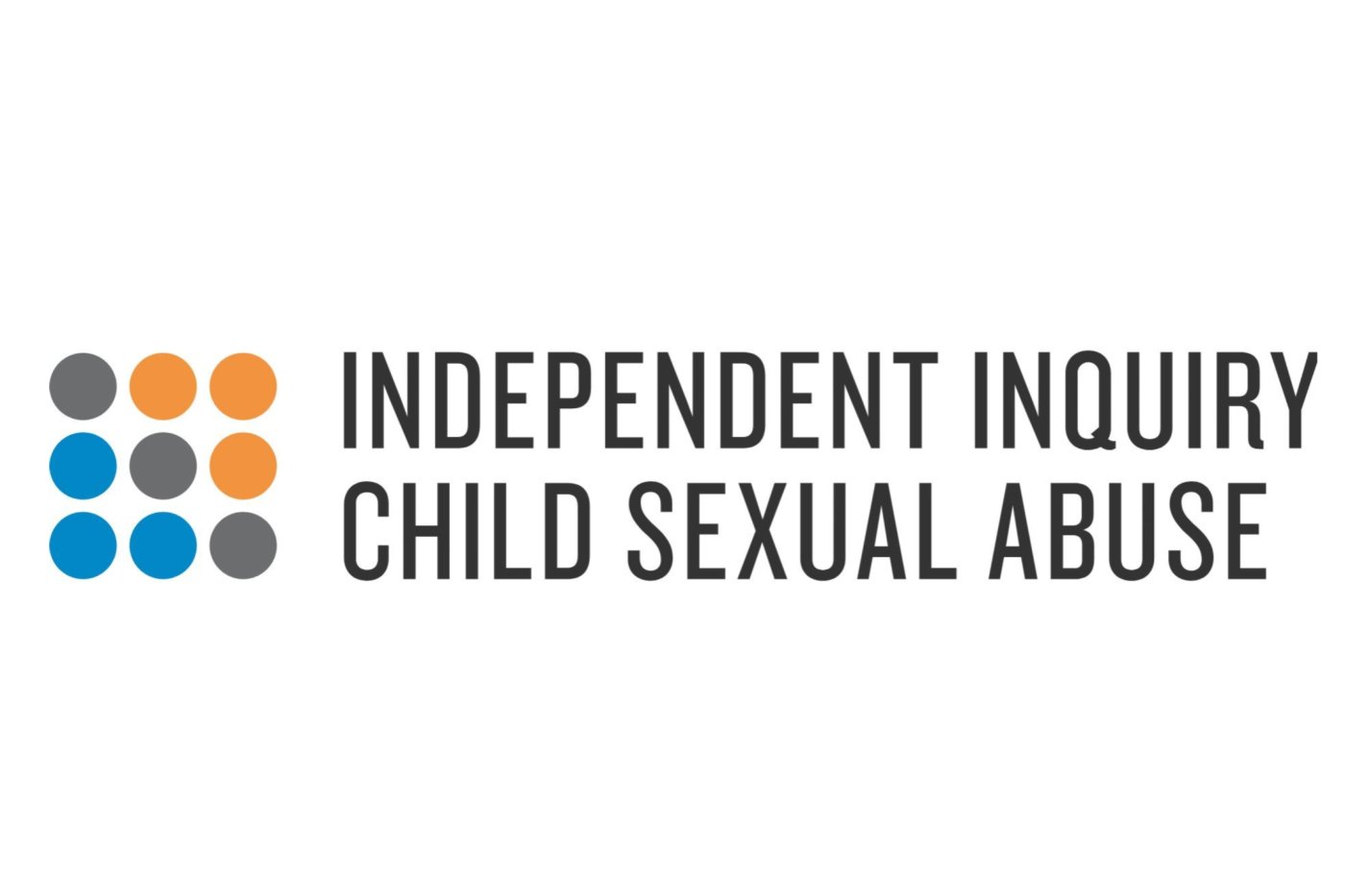IICSA and clerical abuse: the devil in the detail
Posted: Mon, 7th Nov 2022 by Richard Scorer
Richard Scorer unpacks the recommendations of the Independent Inquiry into Child Sexual Abuse and finds that while they appear promising at first glance, they may not be enough to protect children from abuse in religious settings.
Last month the Independent Inquiry into Child Sexual Abuse (IICSA) published its final report. Much of the inquiry's work concerned religious settings, including minority religions alongside the Catholic and Anglican churches. Ahead of the report I set out what survivors were looking for. Now the dust has settled, we can start to assess how the report's recommendations measure up.
Mandatory reporting: a flawed model
Throughout the inquiry survivors argued strongly for mandatory reporting. Headlines on the day of the report's release suggested a big win on this issue, with the inquiry recommending mandatory reporting both for known abuse and for 'signs' of child sexual abuse.
However, on this subject, the devil is in the detail. Mandatory reporting laws across the world vary considerably in terms of who is covered by the reporting duty, what has to be reported and the extent of criminal sanctions for non-compliance.
Design is all; badly designed laws are ineffective. As the campaign group Mandate Now argue, the mandatory reporting law proposed by IICSA has several flaws.
A key issue is criminal penalties for non-reporting. IICSA's law would require mandated reporters to report direct knowledge of abuse, acquired via a child victim's disclosure or a perpetrator's admission to the reporter, or the reporter witnessing the abuse itself. It would also require reporting of "signs of abuse" – in other words, situations where abuse is reasonably suspected. But a criminal penalty for non-reporting would only operate in respect of the first category, i.e. direct knowledge.
For those unfamiliar with the evidence actually heard by the inquiry, this approach has a superficial plausibility. Nobody wants to send mandated reporters to jail. But the reality is that situations in which a child or perpetrator discloses, or abuse is witnessed, are rare.
In the fundamentalist religious settings which are such reliable petri dishes for abuse, these things are rarer still. As my client Yehudis Goldsobel, the former CEO of the charity Migdal Emunah which supports victims of sexual abuse within the Jewish community, explained: "Children in my Haredi community have no language to disclose. On the rare occasion - as an adult - they do disclose, it is too late".
As IICSA's case studies demonstrated, most situations where abuse is covered up institutionally are situations in which personnel suspect that something untoward is happening, but turn a blind eye because of reputational and other pressures. For mandatory reporting to work effectively, a law needs to ensure reporting of reasonable suspicions. But the lack of any criminal penalty for non-reporting undermines both the impetus to do so, and the cover for those who want to report. IICSA's proposal may actually create a positive incentive for a recalcitrant organisation to ensure that a child never gets to the point of direct disclosure. I will be lobbying MPs on this as the report's recommendations go through parliament.
I agree wholeheartedly with the inquiry's approach on one issue associated with mandatory reporting. The report is categorical that there can be no religious exemption to mandatory reporting due to the seal of the confessional. This unequivocal rejection of a religious "get out" is very reassuring. But if this becomes law no doubt the Catholic Church in England and Wales will instruct priests to break the law, as it has done in Ireland and Australia, rather than engaging constructively with the inquiry's recommendation.
An over-reliance on public shaming
The inadequacies of regulatory and inspection systems operated by Ofsted and other oversight bodies such as the Charity Commission were very apparent from the IICSA hearings. Achieving effective regulation of religious settings is a major challenge – even mapping the thousands of settings is difficult, let alone regulating them.
Regrettably, the report takes us little further. IICSA recommends new "Child Protection Authorities" (CPAs) - one for England and one for Wales. This is welcome but the CPAs would have no enforcement power and so would be largely toothless. These paragraphs from the report sum up IICSA's approach:
"The CPAs should have the power to inspect institutions and settings that are already inspected by statutory inspectorates. This power would be deployed on the rare occasions when the institution in question has persistently failed to respond effectively to previous inspection reports or the state of child protection was so poor that the public interest and concern demanded further scrutiny by an inspectorate unconnected with a particular sector.
"It is not intended that the CPAs will have the powers to regulate an institution by, for example, imposing a sanction for failure to implement improvements, though other bodies with appropriate powers could take action. This would not preclude the CPAs referring an institution to other bodies with appropriate regulatory functions. The public exposure of failings in any report is envisaged to be sufficient to bring about the necessary changes."
The premise here seems to be that the existing inspection regime is largely working so the CPA need only act on "rare occasions". But we know from IICSA hearings that the existing regime is failing and needs a complete overhaul.
The idea that public shaming will guarantee change is extraordinarily naive. Public shaming is inherently random: the head of the Catholic Church in England and Wales Cardinal Vincent Nichols was rebuked again in IICSA's final report, becoming the only public figure to have been criticised in three separate reports from a major public inquiry. But this 'public shaming' got completely buried as the prime minister's resignation pushed IICSA to the margins of news coverage. The Catholic Archdiocese of Birmingham has been publicly shamed for years because of a succession of clerical sex abuse scandals, yet when IICSA examined the Archdiocese's safeguarding in 2018 it found it to be inadequate and shambolic; no amount of public shaming had been enough.
Public shaming has little impact on fundamentalist religious groups who reject secular authority. IICSA's approach here is misconceived, and I fear an opportunity for more thoroughgoing reform has been missed.
Redress for survivors: who pays?
The civil claims process can be distressing and adversarial. A redress scheme might make things easier for survivors. The final report recommends the establishment of a national redress scheme. In the abstract this sounds like a good idea, but as we know from Ireland, this begs a question: who pays?
A national redress scheme has to be established and administered by the state. So either the state pays for it, or the funding comes wholly or partly from the organisations where the abuse occurred (including religious organisations such as the Catholic Church).
If the state pays, then the taxpayer picks up the bill for abuse caused by private institutions, and why should the taxpayer pay for the grotesque and decades long clerical sex abuse scandal? The alternative –the scheme being funded by those organisations responsible for the abuse – might be more complex, but at least puts the funding burden on those responsible.
The inquiry's proposed solution – state funding, but with "voluntary contributions" from organisations implicated in abuse – feels like the worst of both worlds. Under this proposal the taxpayer has to pick up the tab, and rely on the goodwill of organisations like the Catholic Church and the Jehovah's Witnesses to defray some of the cost voluntarily. These are the very same organisations which fight survivors tooth and nail through the courts to avoid paying just compensation, so this seems a rather implausible scenario.
The taxpayer already subsidises religious organisations through charitable status - a racket long in need of reform. Under this proposal, I fear the taxpayer may end up paying again, for child sex abuse caused by criminal culpability and cover up in religious settings.
And, most importantly, the more that the scheme relies on state funding, the paltrier the compensation amounts are likelier to be, especially given the state of the public purse. So survivors will lose out.
This is wrong. IICSA could have recommended that organisations implicated in abuse should be required to contribute, and suggested a formula for assessing contributions. Another approach would have been to look at what institutions themselves should do by way of redress. The Church of England has already promised a redress scheme for survivors, but its implementation keeps getting pushed back. The Church of England is an established church subject to parliamentary legislation. IICSA could have specified a deadline for this scheme to be up and running, which the survivors waiting on it desperately need, and recommended legislative intervention to enforce this.
Regarding other religious organisations such as the Catholic Church, the inquiry could have recommended that they take responsibility for past failings by using their vast wealth to establish redress schemes on similar lines. It could also have recommended, if thought necessary, that charities law be amended to facilitate the use of charitable funds for this purpose.
A positive note: abolition of time limits for child abuse civil claims
I have long argued for the abolition of the unfair and antiquated time limits for civil claims. To recap, the law in England and Wales requires that a civil claim for childhood sexual abuse should be brought within three years of the victim turning 18. Although the courts have the power to set aside this time limit, given that the average time delay between abuse and a survivor's disclosure is 22 years, the time limit is simply unfair. It should not exist in the first place. Scotland already abolished the three year time limit in 2017.
On this point at least, the report delivered, recommending that the three year rule be abolished and that cases should then proceed irrespective of time delay unless the defendant can prove that the delay means that a fair trial is impossible (a reasonable proviso; fairness of trial is a fundamental precept of the rule of law). This is an important win.
How should we assess the IICSA report overall? The headline recommendations – mandatory reporting with no religious exception, a new oversight body, abolition of the time bar, and redress for survivors – are exactly the things I hoped for ahead of the report.
But frustratingly the design of some of these proposals is flawed, which means survivors will have to fight for improvements as the report is debated and legislated on by parliament. IICSA could, and should, have done better.
End abuse in religious settings
Religious privilege must not undermine safeguarding and justice. Join our campaign.








